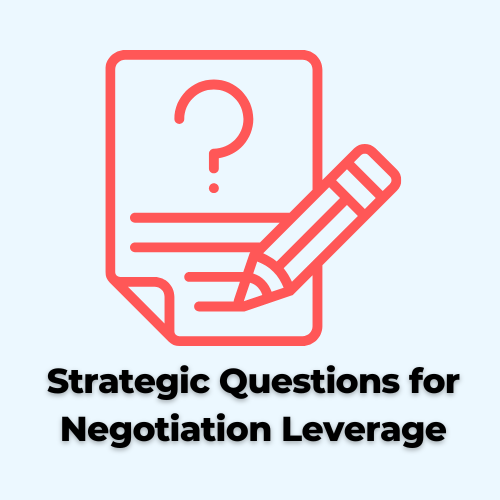Hardware Engineer Salary Negotiation: How To Negotiate a Hardware Engineer Job Offer
If you’re a hardware engineer and have recently received a new job offer, congratulations! However, before you go ahead and accept the role, you need to think about how to prepare for a successful negotiation. And as someone who uses problem-solving every day to design and develop systems, navigating this process should be simple.
We know what you’re thinking: Is negotiating my offer really a good idea?
The answer is yes! Successfully negotiating a job offer in hardware engineering gives you the chance to increase your overall career earnings and receive the compensation you deserve.
Over the years, we’ve helped plenty of hardware engineers negotiate for better compensation packages using our tried-and-true negotiation strategies. In fact, following our step-by-step approach to job offer negotiations is just another way you can highlight your critical thinking skills to the hiring team!
In this article, we will share with you our systematic and effective approach to job offer negotiations. By the end, you will have gained the tips and insights that have helped hardware engineers all over the world successfully negotiate for higher compensation.
Want to Negotiate Your Offer? Get offer-specific guidance from a Salary Negotiation Coach. We help hardware engineers negotiate competitive job offers.
Or leverage our Salary Negotiation Courses and Salary Negotiation Templates.
 Job Offer Negotiation Course
Job Offer Negotiation Course
- Get our job offer negotiation strategies, templates, scripts, and guidance.
- Access our step-by-step lessons, compensation research guides, and tools.
- Access Now
 Raise Negotiation Course
Raise Negotiation Course
- Get our raise negotiation strategies, templates, scripts, and guidance.
- Access our step-by-step lessons, compensation research guides, and tools.
- Access Now
Understanding the Compensation Components of a Hardware Engineer Salary
Hardware engineering jobs are generally highly sought-after and competitive positions. Whether you are a senior hardware engineer or a principal hardware engineer, your compensation should reflect the current demand for someone with your skillset. To understand how competitive your hardware engineer salary is, you need to start by carefully examining what is included in your entire compensation package.
A job offer in hardware engineering will include different compensation components that make up your total yearly compensation. The only way to navigate your job offer negotiation effectively is by understanding how each of these components work before negotiations begin.
Most people place all their attention on the base salary of a job offer. However, your base salary is generally only one portion of your entire compensation package in a hardware engineering role. Job offers in certain industries also include elements like an annual performance bonus, initial equity package, sign-on bonus, and other benefits like extended paid time off and remote work flexibility. Focusing only on the base salary of your hardware engineer job offer would be a mistake when evaluating your offer and approaching your negotiation.
For example, here is what a Apple hardware engineer salary may look like in their initial offer:
Apple Hardware Engineer Salary
To help you better understand your offer, let’s spend some time taking a closer look at the different hardware engineer compensation components.
HARDWARE ENGINEER BASE SALARY
As mentioned above, the first component of your job offer is the most obvious one: your hardware engineer base salary. Your base salary is the fixed guaranteed pay you receive in exchange for the work you do. Since your base salary isn’t dependent on your performance or the performance of your company, it should never change (unless you receive a raise of course).
Each level of hardware engineering at your company will have a base pay range associated with it. These ranges will have set minimum and maximum amounts that your hardware engineer base salary can fall within.
For example, the maximum and minimum for a hardware engineering manager salary will be different from that of an entry level hardware engineer salary at the same company, and same role different across companies (i.e., a Google hardware engineer salary will differ from a Nvidia hardware engineer salary).
Here’s why this matters: Even though hardware engineering roles are competitive, initial offers rarely come in at the top of their pay bands. If you can identify what the pay range for your specific role is at your specific company, you can then try to negotiate to the top end of that band.
HARDWARE ENGINEER PERFORMANCE BONUS
Most hardware engineering job offers also include an annual performance bonus. An annual hardware engineer performance bonus is usually a percentage of your base salary that’s dependent on both company and personal performance. If you or your company perform well, your hardware engineer performance bonus could go up. On the flip side, if you or your company perform poorly, your bonus could go down.
Even though it’s possible in some cases to exceed the target percentages if you and your company outperform your goals, it’s best to assume the average bonus payout when evaluating this element of your compensation package.
Even so, your yearly performance bonus can make a huge difference in your total compensation as a hardware engineer. However, for most companies, we have found that these bonuses tend to be non-negotiable since there is often a pre-set target percentage for each role that can’t be changed. But here’s where things get exciting: Even though you can’t change the target percentage, you can negotiate for a higher base salary. And since your annual performance bonus is usually a percentage of your base salary, the higher you negotiate your base salary, the higher your hardware engineer bonus could be.
HARDWARE ENGINEER EQUITY PACKAGES
As a hardware engineer, you may receive an initial equity grant in your job offer. Hardware engineer equity is highly sought-after in these types of roles. This equity can be offered either as RSUs (restricted stock units or restricted stock awards) or stock options. This grant will include a bundle of shares or options that vest over a defined timeframe (i.e., four years), called a vesting schedule. While it’s true that these equity packages are more common in tech companies, we’ve seen that many startups and non-tech public companies are beginning to offer them as well.
Hardware engineer equity packages can significantly improve your overall compensation. With that being said, it’s important to also remember that the value of this equity will fluctuate based on the market value of the company you work for. For example, say you secure a job offer with Nvidia—you’ll benefit if Nvidia’s share value goes up, but you’ll take a loss if their share value goes down. The downside to equity is that you usually cannot control fluctuations in share value and if you leave the company before the equity vests, you risk forgoing it all together.
In our experience, we’ve found that you can generally negotiate your equity package in hardware engineering roles. However, don’t forget that equity is just one component of your overall compensation. So while we recommend pushing for more equity in your negotiation, we also encourage you to focus on the other compensation components as well.
HARDWARE ENGINEER SIGN-ON BONUS
Most hardware engineers will receive a sign-on bonus—it just might take some negotiating first. A hardware engineer sign-on bonus is a one-time bonus that companies offer as an incentive to work for them. A signing bonus can also cover unvested equity or lost bonuses at your previous company.
Knowing how to negotiate for a sign-on bonus is essential since some companies won’t include them in their initial offers. Fortunately, we’ve had countless successes securing large hardware engineer sign-on bonuses. We highly recommend you negotiate for a hardware engineer sign-on bonus even if you’re not walking away from money at your current company. These bonuses can be extremely valuable, so you never want to gloss over them during negotiations.
Most hardware engineer signing bonuses are paid in one lump sum within the first 30 days of employment. However, if you leave the company within your first year (or other designated timeframe) you’ll typically have to pay the bonus back.
It’s important to note that some companies approach sign-on bonuses differently. For example, Amazon is known to offer sign-on bonuses in year one and year two—which can be paid out monthly instead of in one lump sum payment. Make sure to do your due diligence to learn exactly how sign-on bonuses work at the company you got the job offer from.
HARDWARE ENGINEER EQUITY REFRESHER
The next compensation component to evaluate is your hardware engineer equity refresher. While it’s possible to receive an equity refresher (more stock) in your initial offer, most recruiters will withhold stock refresher details. This practice is common for equity refreshers at Meta and other industries that offer this annual perk.
When negotiating your compensation package, we encourage you to ask the hiring team to share more details about the amount and timeline of the stock refresher. However, many hiring teams will shy away from sharing these specific details, making it difficult to compare this benefit across different hardware engineer offers. Because of this, we don’t include this component in our total compensation calculation.
BENEFITS AND PERKS FOR HARDWARE ENGINEERS
Benefits for hardware engineers will differ between specific companies. Examples of these types of benefits include things like health insurance, retirement plans, work-from-home stipends, or even childcare assistance.
A significant perk you can negotiate in some hardware engineering roles is the ability to work remotely or a hybrid schedule. Unfortunately, most other benefits and perks for hardware engineers are usually non-negotiable. However, in some cases it’s possible to get changes approved via an under-the-table agreement with your future hiring manager (i.e., your manager will let you take more time off or let you expense your phone).
Five Proven Steps to Negotiate a Hardware Engineer Job Offer
Now that we’ve gone over the different compensation components of a hardware engineer job offer, it’s time to explain how you can actually improve your hardware engineer salary through negotiating.
Over the years, we have guided hundreds of career professionals through successful salary negotiations. Our biggest takeaway? It’s always best to avoid starting the negotiation process until you have an offer in hand. Waiting to receive an offer gives you more leverage to negotiate and you’ll be less likely to disclose your salary expectations to the recruiter too early (a big mistake).
Below, we have included our step-by-step proven approach to negotiating a hardware engineer job offer. While these are the key steps to a hardware engineer salary negotiation, we strongly recommend hardware engineers work with a Salary Negotiation Coach to guarantee success and get all of our strategies.
1) UNDERSTAND THE COMPONENTS OF YOUR HARDWARE ENGINEER SALARY
This first step should be the easiest since we’ve covered it already. As a reminder, make sure that you understand all of the different elements of your compensation package, including your base salary, performance bonus, initial equity grant, sign-on bonus, and any other benefits and perks. Taking the time to evaluate and thoroughly understand your total compensation is a critical step before negotiating any job offer.
Use our Total Compensation Calculator to compile your compensation components in this step if needed.

- Understand Total Compensation – Use our tool to break down and calculate the compensation in your job offer.
- Research & Compare Offers – Organize your compensation research and determine the right counter amount.
- Get Here
2) COMPLETE DUE DILIGENCE ON YOUR HARDWARE ENGINEER JOB OFFER BY ASKING THE RIGHT QUESTIONS
Asking thoughtful and strategic questions shows the recruiting team that you are invested in knowing more about the role and it makes it much easier to establish an effective and appropriate counteroffer. Ask questions to get clarification on things the recruiter may have shied away from sharing (i.e., What is the expected equity refresher each year for this role?) so that you can collect data points to use in your hardware engineer counteroffer.
Even if you’re confident you already understand every aspect of your offer package, we still recommend you ask for even more information so that you can further strengthen your counteroffer. If you’re unsure what to ask, you can use our list of questions and checklist before accepting job offer. We encourage you to start this step of the negotiation process immediately after you receive your initial offer.

- Build Negotiation Leverage – Ask the right questions to strengthen your negotiation before sending a counter.
- Email & Phone Scripts – Get our list of questions to ask and what to say if the recruiter wants to chat through them.
- Get Here
3) RESEARCH TO IDENTIFY WHAT HARDWARE ENGINEER COMPENSATION SHOULD LOOK LIKE
Since the compensation for hardware engineers will vary across different companies, you’ll need to spend time researching what the pay bands for your specific role are. Your research should help you identify the strength of your current offer and how much you should ask for in your negotiation.
Make sure that your research is specific to your exact role type and level (i.e., do you need to research for a senior hardware engineer salary or principal hardware engineer salary) and where it’s located, whether that be in-person, hybrid, or remote.
You can start your research online by checking out resources such as PayScale or Comparably. However, make sure to compare your findings across multiple resources since pay data on these types of sites are publicly reported by current or past employees and the pay they indicate may differ from what is now offered to new employees (i.e., the current employees’ total compensation is higher because the stock price appreciated, and their equity is more valuable). It’s also possible that the employee didn’t correctly upload all of their hardware engineer salary components accurately.
When conducting this research, don’t forget that you’ll ultimately be expected to manage the same tasks as anyone hired for your same role at that specific company. This means you should push for at least the mid- to top-end of the total compensation range for your hardware engineering role level regardless of your experience or background. You can use our Total Compensation Research Comparison Tool to help you with your compensation research and identify the pay ranges.

- Understand Total Compensation – Use our tool to break down and calculate the compensation in your job offer.
- Research & Compare Offers – Organize your compensation research and determine the right counter amount.
- Get Here
4) SEND A HARDWARE ENGINEER COUNTEROFFER TO THE RECRUITER
Steps one through three are all about preparing for your hardware engineer salary negotiation. Once you’ve completed them, you should be ready to officially send over your hardware engineer counteroffer.
You should start your negotiation by presenting your counteroffer to the recruiter, making sure to reference the pay data you’ve researched and to explain how the benefits differ from other companies and/or your current role. We highly recommend you counter through email rather than over the phone. Emailing your counteroffer gives you the opportunity to draft exactly what you want to say (helping minimize the risk of going off-topic) and ensures you have everything in writing. Presenting your hardware engineering counteroffer in writing also gives the recruiter something tangible they can forward on and use internally to get you a better offer.
As always, approach this step professionally and graciously. This is your first chance to highlight that you’d be a great team member to work alongside. To ensure proper communication, use our Counteroffer Drafts for examples to help you formulate a strategic counteroffer.

- Proven Counteroffer Templates – Built from hundreds of successful job offer negotiations.
- Negotiate with Confidence – Remove the guesswork with our professionally crafted counteroffers.
- Get Here
5) HANDLE ANY OBJECTIONS AND KNOW YOU ACHIEVED THE BEST HARDWARE ENGINEER SALARY
It’s possible the hiring team will respond immediately to your hardware engineer counteroffer with an updated offer. However, it’s more likely that the recruiter will come back with a list of reasons from the hiring team as to why they can’t make any increases to your hardware engineer salary.
If this happens, respond kindly and explain that while you understand their constraints, you would still appreciate it if they could take your thoughts back to their team for one last look at the offer. You should follow this approach even if they insist their team will just say no and lean on all of our Objection Handling Scripts to handle these conversations.

- Overcome Recruiter Pushback – Proven scripts to handle pushback and keep your salary negotiation on track.
- Communicate Effectively – Use expert responses to get recruiters to advocate for you with the compensation team.
- Get Here
While you should be prepared to face a few objections, once they agree to take your counteroffer back to their team, they should return with a better offer.
Once you receive an updated job offer that meets your needs and aligns with the hardware engineer pay bands you researched, you should be ready to send an offer acceptance email. Congratulations on your successful negotiation!

- Accept or Decline – Expert crafted job offer acceptance email and rejection email templates to share your decision.
- Professional & Genuine Tone – These help you communicate in a professional manner regardless of what you decide.
- Get Here
Mistakes to Avoid During Your Hardware Engineer Salary Negotiation
When it comes to navigating hardware engineer salary negotiations, don’t forget that hiring teams are trained to get the best deal for the companies they work for. While they most likely won’t lowball you, they probably will try to get you to accept without negotiating. To help you make the most of your negotiation, we have shared some key mistakes that you should aim to avoid below.
AVOID SHARING SALARY EXPECTATIONS BEFORE YOU GET A JOB OFFER IN HARDWARE ENGINEERING
Sharing your salary expectations too early almost always works against you when trying to receive a fair job offer in hardware engineering.
Let’s take a look at how making this mistake might play out: If you share a lower salary expectation than what the company could offer, they are more likely to offer you that lower compensation. On the flip side, if you share an expectation higher than what they could offer, there is a chance that they could become disinterested and opt to go with a different candidate. Never forget that recruiters are working for the company, not you.
Logically speaking, it also doesn’t make much sense to discuss salary expectations before you learn more about the specific role being offered, its benefits and compensation, and whether those aspects feel like a good fit for you. After all, you’re also interviewing them to see if this role is something you want to pursue so be sure to overcome these tactics by responding like this.

- Salary Expectation Responses – Scripts to overcome recruiter salary expectation discussions and pre offer calls.
- Avoid Lowballing Yourself – These call scripts and email templates will help you get a competitive offer.
- Get Here
DON'T BE AFRAID TO NEGOTIATE A HARDWARE ENGINEER JOB OFFER
Many people shy away from negotiating because they’re scared of offending the recruiting team and ultimately losing out on the job offer. However, in our hundreds of successful salary negotiations, we’ve never seen a company take back a hardware engineer job offer because of an attempted negotiation. It's generally expected, regardless of the role level—whether it’s an entry level hardware engineer role, manager engineering salary, director hardware engineering salary, or a VP hardware engineering salary—you should negotiate your salary.
There’s nothing to be afraid of—don’t let salary negotiation concerns keep you from negotiating for the compensation you deserve.
BE REALISTIC BY DOING YOUR HARDWARE ENGINEER COMPENSATION RESEARCH
It’s true that hardware engineering roles pay well. However, it’s still important to be realistic about what compensation is possible for the specific role you are offered.
Make sure to use your analytical and problem-solving skill set to come up with a realistic and appropriate ask. You should research your role thoroughly so that you only push for compensation that the company can actually provide. For example, an entry level hardware engineer salary at a start-up or non-tech company would differ from the compensation package offered during a TikTok salary negotiation or Microsoft salary negotiation.
Hardware Engineer Salary Negotiation Coaching & Tools
Increasing hardware engineer compensation requires a deep understanding of the company’s compensation philosophy and the right salary negotiation strategy. Our expert Salary Negotiation Coaching will help you navigate the hardware engineer salary negotiation process and secure the top end of the pay band.
Or leverage our Salary Negotiation Courses and Salary Negotiation Scripts.
 Job Offer Negotiation Course
Job Offer Negotiation Course
- Get our job offer negotiation strategies, templates, scripts, and guidance.
- Access our step-by-step lessons, compensation research guides, and tools.
- Access Now
 Raise Negotiation Course
Raise Negotiation Course
- Get our raise negotiation strategies, templates, scripts, and guidance.
- Access our step-by-step lessons, compensation research guides, and tools.
- Access Now



